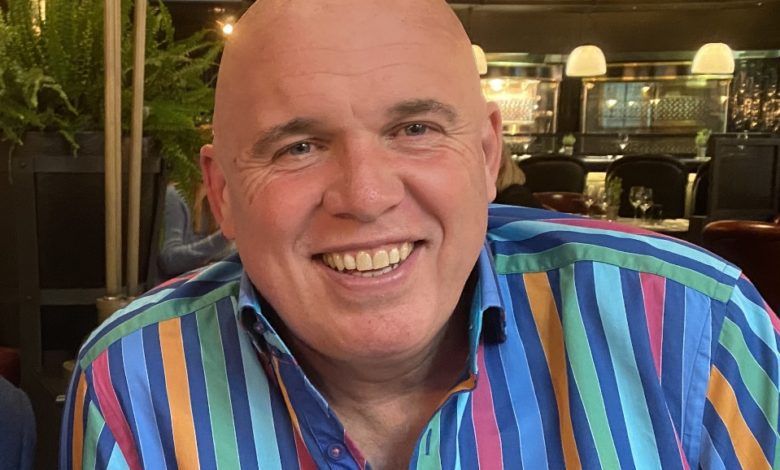Warnings and uncomfortable truths about the hospitality sector
By Richard Martin, owner of the Blazing Donkey Country Hotel in Sandwich, Kent

When asking successful business owners what or whom they owe their success to, they inevitably express their gratitude to their “dedicated” and “loyal” staff. Not us. In all honesty, we can’t and could never do that because our experience has, until recently, been the polar opposite.
Too often, we have had to pick up the pieces while our staff have fallen way short. Our “normal” is one of knock backs, let downs and dishonesty, and this sadly continues today, providing us a constant source of stress. Our sector, while gently improving its image, has arguably never been able to attract enough talent and suffers a scarcity in the labour market, as well as workers who are unsuited to traditionally demanding career paths.
My warning to any new or would-be entrants to this sector: be prepared for the let-downs, for the broken promises, and for the exhausting hours picking up the slack. Having thick skin is an advantage, too; hospitality is most certainly not for the faint hearted and new operators should ensure they have an understanding of all areas of their business before even thinking about starting out. Like us, you’ll be let down and you need to be ready for that inevitability – nobody warned us.
My second piece of advice is to be alert to your shining stars. There are very good ones out there, but too few and far between. Employers must not be complacent so when, rarely, they do find a diamond in the rough, make absolutely sure to value, support and nurture them.
Find a niche by looking at trends, reinvesting profits and taking on serviceable debt
Our business has evolved rather than been designed. We have had to react rapidly to change and the demands of our customers, but more importantly, I would like to think we have also been creators of demand. As an example of creating demand, our hotel was the first to be licensed for outdoor marriage ceremonies in Kent during the late 90’s. We identified a new market early and are now reaping the benefits as one of the county’s most prolific wedding providers.
Another example of change where we had to react quickly or possibly lose the business was the loss of our main client, Pfizer, in 2011. The pharmaceutical giant’s European operations were headquartered in Sandwich and employed 4,000 staff. Between Monday to Friday, our hotel rooms were full with their guests, accounting for 50% of our overall turnover then. However, when they closed their site in July 2011 seemingly overnight, we lost our client.
At break-neck speed, we had to seek new clients and focus on the leisure market to offer golf and gourmet breaks, the latter being made easier with Deal, Sandwich and Margate becoming hot tourist destinations around that time. We also forged relationships with many visitor attractions which provided a conduit for booking our accommodation. The experience with Pfizer also taught us not to be vulnerable to one client or one income stream.
Maximise income and minimise costs
Our business draws its principal income streams from our accommodation, wedding venue hires, and our restaurant. However, the hotel’s wedding-related income always outperforms the rest, as we have maximised this revenue stream through effective marketing to help generate new and repeat customers. As a result, our turnover, leaving out the Pfizer closure and Covid years, has enjoyed 30 successive years of controlled growth.
Meanwhile, our spending on advertising is less than 4% and is entirely targeted at weddings, our most profitable stream. When we first opened the hotel, the internet did not exist but today 100% of our advertising spend is online with META. Equally, we increasingly rely on online booking platforms for accommodation business. However, we are now looking at initiatives that will allow us to become less reliant on commission-based booking platforms.
Our overheads are constantly monitored, and as a relatively small business, we observe strict cost controls as a matter of principle; non-essential spend is rare in current times as our operating overheads have reached £10k per month more than pre-lockdown. Spot buying of food and beverage has also helped us maintain 80% GP’s despite the steep rises in cost of food and drink.
You can only bank cash, not reviews or stars
A constant source of distraction are the online review platforms. What could possibly go against the grain, is that we discourage our management from being distracted by websites. Too often, I hear of industry novices worrying too much about reviews and not enough about the “here and now”.
Instead, we emphasise the importance of customer-facing time and using all our resources to deliver the best possible levels of service. There is a graveyard of businesses that were too worried about what people thought or what a review said, instead of running their business – after all, reviews and awards are not currency and cannot be banked. My advice to anyone new to the sector is to focus on your product, believe in it and deliver it with your team to the best of your ability, and don’t worry about indifferent reviews.
The bumps in the road can be painful, but like in our case, you can also steer your business through expansion. My wife and I had no experience of the sector nor formal training, but the mistakes we’ve made along the way of our 30 years, combined with a common sense approach, have undoubtedly ended up shaping our business for the better.









